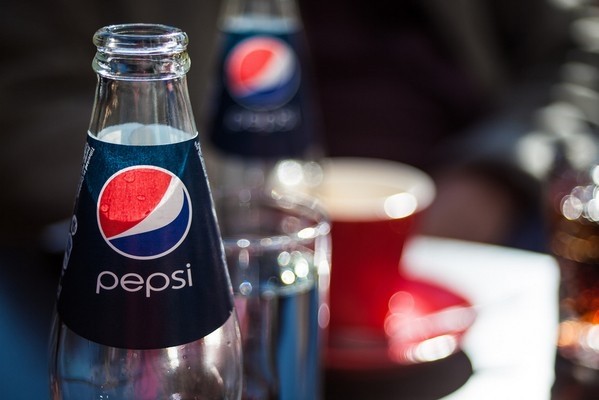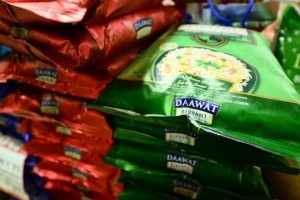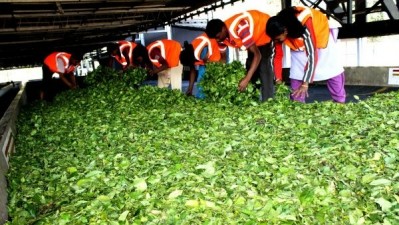PepsiCo could divest of half its Indian drinks territory by mid-2018

According to Economic Times, which spoke to two unnamed executives with knowledge of the deal, PepsiCo India is aiming to rationalise its sluggish drinks business, whose growth has been in single figures for the last two years.
A suitor for the estimated INR30bn drinks division has not been named, though Ravi Jaipuria, who acquired the franchise for the north and east of India three years ago, may be in the picture for further consolidation.
Alternatively, PepsiCo might go down the route of seeking multiple investors in the business. A deal is expected to be finalised in the first half of 2018, according to one of the sources.
Under the likely terms of an agreement, PepsiCo would retain the brand ownership of drinks including Pepsi, Mountain Dew and 7 Up, and sell its concentrates to franchisees for bottling, distribution and sale.
This asset-light approach to the beverage business would allow PepsiCo to concentrate on its booming snacks division, which has been seeing double-digit growth in products such as Kurkure, Doritos and Lay’s—currently India’s fastest-growing consumer grocery brand.
By comparison, its premium drinks have been performing weakly in the face of competition from cheaper local brands at a time when consumers have been shying away from sugary beverages.
A mass boycott of American-owned soft drinks in southern India this year has not helped, and neither has a sin tax imposed on sweetened beverages as part of a new GST system roll-out several months ago.
Jaipuria’s RJ Corp is PepsiCo’s second-biggest bottler globally, and operates in 18 states and two union territories, having acquired the giant’s bottling business in Madhya Pradesh and Odisha last month.
It also operates runs PepsiCo plants in markets including Sri Lanka, Mozambique, Zambia and Morocco. About half of its US$1.6bn annual business is tied up with PepsiCo.
More from South Asia...
Amul to launch camel milk chocolates for Diwali
The owner of the Amul dairy brand will launch chocolates made from camel milk in time for the Hindu festival of Diwali.
RS Sodhi, managing director of the Gujarat Cooperative Milk Marketing Federation (GCMMF), said the milk for the product will be acquired locally.
He said the chocolate will be made from milk mainly from the Kharai and Kutchi pastoral camel breeds, and sold at around 200,000 retailers across India.
“We will procure camel milk from Kutch and the chocolates will be made at Kaira District Co-operative Milk Producers,” he added.
Sarhad Dairy, the commercial name of the Kutch district dairy co-operative, is in the process of setting up a camel milk processing plant in the area, which will soon be operational.
Sodhi also announced that a new Amul confectionery plant has been planned for Anand, also in Gujarat. It will be used for the manufacture of a range of chocolate products, and will have a capacity of around 1,000 tonnes per month.
India’s food regulator, the Food Safety and Standards Authority of India, last year approved camel milk as a food item, issuing specific standards for its sale and trade.
Camel chocolate has long been manufactured in Arab countries, and is currently going through a resurgence in demand.
LT Foods JV to ‘create’ rice-based snacks
Basmati rice manufacturer LT Foods will launch premium rice-based snacks through a joint venture with Kameda Seika of Japan, under the brand name Kari Kari.
The product will be initially be available in four flavours across Delhi NCR, Mumbai and Bengaluru, and will form a “new category that we are trying to create,” according to Ashwani Arora, chief executive of LT Foods, which will have a 51% stake in the business, named Daawat Kameda India.
“The products are developed as per consumer preferences in terms of flavours and tastes. We have been looking at this market for the past three years,” Arora said.
With LT Foods present in 65 countries, and snack specialist Kameda operating across Asia and America, Kari Kari will likely be available in other countries at a later stage.
LT’s entry into the premium snacks market is part of its plan to cross the US$1bn revenue mark by 2022, through diversification into ready-to-make, ready-to-eat and organic staples. In March, it reported income of INR32bn (US$490m).
According to Euromonitor International, India’s savoury snack market will continue growing at an annual rate of 12%, to be worth INR445bn by 2021.











